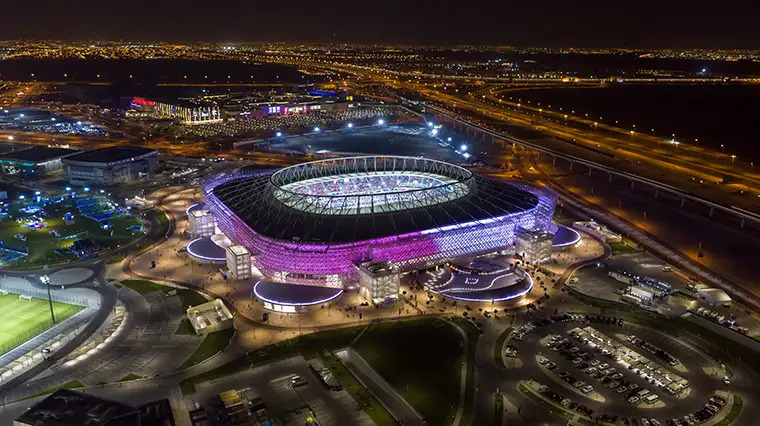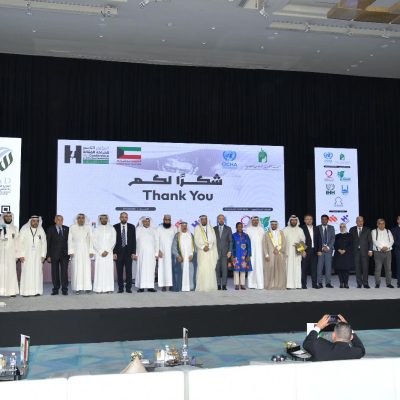Argentina 1 – 2 Saudi Arabia
What?
That can’t be right, can it? There’s no way Saudi Arabia could beat Argentina in a World Cup match. Don’t be ridiculous!

But it is true. It did happen. And Salem Al-Dawsari will go down in history as a footballing legend.
The shock victory over one of the tournament’s favourites resulted in Salman bin Abdulaziz Al Saud, King of Saudi Arabia, declaring a public holiday. And why not? It was, without doubt, a victory worth celebrating. Not only that, but the players were each promised a Rolls Royce by Crown Prince Mohammed bin Salman Al Saud in the wake of their impressive comeback.
The match began predictably with Argentina taking the lead after just ten minutes, thanks to a Lionel Messi penalty (awarded after a contentious VAR decision). The former Barcelona striker, now a firm favourite at Paris Saint-Germain, was likely playing in his last World Cup so no-one would deny the seven-time winner of the Ballon d’Or a little success in Qatar, would they? He’d made no secret of the fact that lifting the World Cup would be the perfect way to crown his illustrious footballing career. In which case, a defeat to the team ranked 51st in the world was certainly not the ideal start.
The upset took place in the Lusail Iconic Stadium and saw Argentina’s 3-year, 36-game, unbeaten run come to a shocking end. But although the Al-Hilal winger will be forever remembered for his 53rd minute winner, let’s not forget Saleh Al-Shehri who levelled the score just three minutes into the second half.
Although not exactly a ‘home’ crowd in the true sense of the word, there’s no denying the Middle Eastern venue gave Saudi the home advantage, the vocal spectators providing ample support for the team in green. And what a delight it was to see so many Saudi women cheering on their national team.
With so much criticism being thrown at Qatar prior to the start of the tournament, it was good to deflect the scrutiny away from less favorable issues and to focus attention back on the football itself. That is, after all, what the World Cup is all about.
So, next up for Saudi was Poland and Barcelona’s in form striker, Robert Lewandowski.
Having missed a penalty in their opening game against Mexico, Poland’s number nine made up for his error by putting one past goalkeeper Mohammed Alowais in the 39th minute to give Poland a two goal lead. Five minutes later, it was Salem Al Dawsari’s turn to fail from the penalty spot, his poor spot kick being saved by Poland’s reliable keeper, Szczesny, who then pulled off a spectacular one-handed save when the rebound was blasted towards goal by Mohammed Al Burayk.
It was a disappointing result after the euphoria of Saudi Arabia’s previous win but there was still much to play for. This was shaping up to be a tournament full of surprises with Germany losing unexpectedly to Japan, the Netherlands failing to score against Ecuador and Belgium losing 2–0 to Morocco.
What wasn’t surprising, though, was the fact that Word Cup holders, France, were the first team to qualify for the last 16, closely followed by Brazil and Portugal, all three having won their first two group games.
But more unexpected results were to follow. Sadly, Qatar wasn’t one of them, and having lost all three of their group games, the host nation was one of the first to exit the competition. In fact, they were knocked out after just five days, the shortest time ever for a host country at the World Cup.

Unfortunately, Saudi Arabia were also eliminated after a 2-1 defeat to Mexico, a result that saw them finish at the bottom of group C. The euphoria of their win against Argentina will, however, ensure the 2022 World Cup is one that the team (and the country) will never forget.
Thursday 1st December was, perhaps, the most bizarre day of all when it came to shock results. Belgium’s big name stars – including Kevin De Bruyne, Romelu Lukaku and Eden Hazard – failed to score against Croatia, the 0-0 result seeing them finish third and heading home to Belgium after just three games.
Later that day, it was all to play for in Group E. Any two of the four teams – Germany, Spain, Japan and Costa Rica – could qualify. As the evening progressed, the position of the teams constantly shifted, resulting in a roller-coaster of emotions for the fans. Ultimately, despite winning 4-2 against Costa Rica, Germany were knocked out of the competition at the group stage for a second consecutive World Cup. It was, in fact, a much debated VAR decision in the other game involving Japan and Spain that actually eliminated the Germans, allowing Japan to claim three points and to finish top of Group E ahead of Spain in second place.
But something else happened in the match at Al Bayt Stadium as Germany took on Costa Rica. For the first time ever, the Word Cup match was officiated by an all-female on-field team. French referee Stephanie Frappart was joined by assistants Neuza Black from Brazil, and Mexican Karen Diaz Medina, in what was a seamless performance. Bravo!
Back on the pitch and onto the round of 16, the first two of which saw Netherlands knock out USA and Argentina defeat Australia. Lionel Messi was on fine form and helped his team secure a place in the quarter finals. France and England also booked their places at the expense of Poland and Senegal, respectively. Later, Croatia saw off Japan in the first penalty shoot-out of the competition.
The match between Brazil and South Korea was, arguably, the most entertaining match of the Word Cup so far. The team in yellow ran riot and were 4-0 up at half-time in what was a dazzling display of attacking football. South Korea were able to pull one back in the second-half but it was scant consolation.
The final two last-16 matches saw Morocco take on Spain and Portugal play Switzerland. The first game was still goalless after extra time resulting in the second penalty shoot-out of the tournament. Morocco emerged victorious after Spain failed to convert any of their first three penalties. Portugal had an easier route into the quarter finals, winning 6-1 despite the fact that Cristiano Ronaldo didn’t come off the bench until the 73rd minute. In fact, his direct replacement, 21-year-old Gonçalo Ramos, became the new Portuguese hero thanks to an impressive hat-trick.
The first quarter final would be played between Croatia and Brazil, with the Brazilians and their in-form striker, Richarlison, tipped as favourites. It was the Europeans, however, who progressed, winning 4-2 on penalties after a 1-1 extra-time draw.
The second involved Netherlands and Argentina, with Lionel Messi’s team expected to win. This time, it was a little more predictable, although, again it took penalties to decide the winners with Argentina winning 4-3.
Morocco took on Portugal in the third of the quarter finals with everyone impatient to see whether new star Ramos would start ahead of Ronaldo. He did, but failed to make the impression he had in the previous game. Morocco took the lead late in the first half but Portugal couldn’t find an equalizer, despite Ronaldo replacing Neves after 51 minutes.
The superstar left the pitch in tears after the final whistle, his fifth and final World Cup ending at the quarter final stage.
The last quarter final match was between England and France. Thanks to the pace and skill of Kylian Mbappé, the World Cup holders were predicted to have the edge over the English and in the first half this was definitely the case, Tchouaméni blasting a spectacular strike beyond keeper Jordan Pickford after just 17 minutes. England’s reliable captain, Harry Kane, converted a penalty early in the second half only to see Oliver Giroud score 24 minutes later. But in the 84th minute, Harry Kane once again faced his Tottenham teammate, goalkeeper Hugo Lloris, when a second penalty was awarded to England. This time, he failed to hit the target and France progressed to the semi-finals.
So, the semi-finals looked like this: Argentina v Croatia and France v Morocco. Would France become the first county to retain the World Cup for 60 years? Perhaps Morocco would win the first World Cup for Africa. Maybe Croatia would win its first ever World Cup. Or, would Lionel Messi get his hands on that one, elusive trophy?
The first semi-final saw Croatia put up a brave fight against Argentina on 13th December. Croatia played some brilliant attacking football but were unable to capitalize on their lengthy bouts of possession. They went behind after 34 minutes thanks to an unstoppable Lionel Messi penalty and conceded another just five minutes later courtesy of a brilliant individual goal by Julián Álvarez. The Manchester City striker then made it 3-0 in the second half, a somewhat flattering scoreline. Nevertheless, it was a heartbreaking exit for Croatia’s captain, Luka Modrić, who was playing in his last World Cup.
The following evening saw the current world champions take on Morocco. France took an early lead but Morocco remained a threat throughout. Only when Kolo Muani scored a second for France in the 79th minute was it really over for the African team.
So, the stage was set for a nail biting final between two footballing giants: Argentina and France. Would ‘the goat’ finally get his hands on the World Cup or would Kylian Mbappé bring it home (again) for France?
The first half was dominated by the Argentinians who took complete control of the match. Contrarily, France looked tired and lackluster and lacked the passion and determination that had accompanied them throughout the tournament. When Argentina were awarded a penalty in the 23rd minute, it was Lionel Messi who converted from the spot. Thirteen minutes later, Di Maria made it 2-0 thanks to a brilliant counter-attack involving both Messi and Alexis MacAllister.
France’s coach, Didier Deschamps, made reactive changes before half-time, bringing off Dembélé and a disgruntled Olivier Giroud, replacing them with Kolo Muani and Thuram, respectively. But France remained second-best for most of the second half, only coming to life after Kylian Mbappé scored a penalty in the 80th minute. Just one minute later, he scored again with a fabulous volley that had the potential to break Argentinian hearts.
Extra time loomed in what was shaping up to be an unforgettable final. The first half remained goalless but Messi, in the right place at the right time, scored an opportunist goal that looked to have won it for the South Americans. But there was more drama to follow and it came in the form of a penalty for France, converted by Mbappé for a World Cup Final hat-trick – the first since 1966.

So, the FIFA World Cup Final 2022 would be decided by penalties, with attention now focused not just on the two number 10s but on goalkeepers, Hugo Lloris and Emiliano Martinez. The Aston Villa keeper was able to save Kingsley Coman’s kick and when Aurelian Tchouameni missed the target, he effectively handed the World Cup to Argentina.
It was everything you would want from a World Cup Final: entertaining, dramatic, thrilling, tense and unpredictable. And regardless of your sporting allegiance, it was an absolute delight to see the great Lionel Messi lift that golden trophy.
Messi was also awarded the Player of the Tournament with Mbappé taking the Golden Boot and Martinez winning the Golden Glove. And let’s not forget, Saudi Arabia defeated the World Champions in the opening round!
The post-tournament debates will, of course, continue but one thing is certain: the Qatar World Cup has, without doubt, put the Middle East on the map when it comes to major sporting events.








